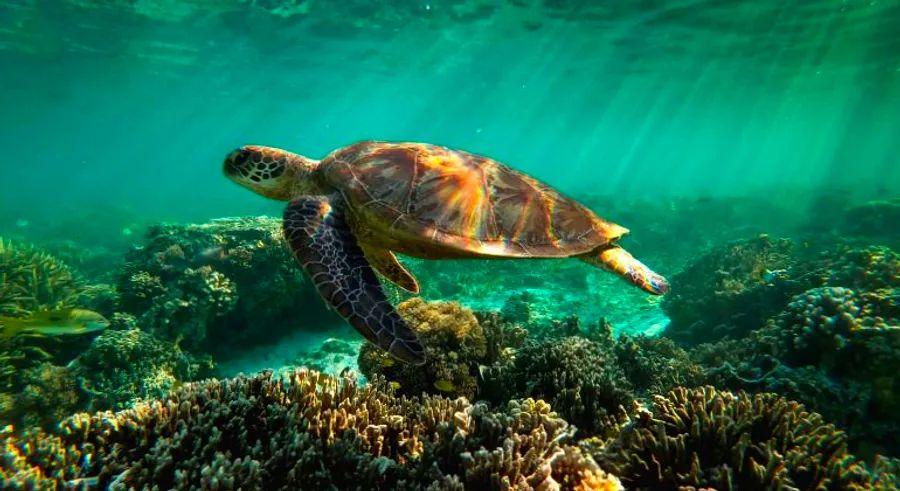Half of the coral populations in the Great Barrier Reef have been lost over the past 30 years.

A recent study has revealed that 50% of the Great Barrier Reef's coral populations have vanished over the last three decades, with climate change identified as a major factor behind the reef's decline.
Researchers from the ARC Centre of Excellence for Coral Reef Studies in Queensland, Australia, conducted a comprehensive survey of coral communities along the Great Barrier Reef from 1995 to 2017, documenting the decline of nearly all coral populations.
Coral reefs are among the most diverse marine ecosystems, supporting a quarter to one-third of all marine species at some stage of their life cycle.
Spanning nearly 133,000 square miles, the Great Barrier Reef is the world’s largest coral reef system, home to over 1,500 fish species, 411 species of hard corals, and a variety of other marine life.
According to co-author Terry Hughes, a distinguished professor at the ARC Centre of Excellence for Coral Reef Studies, research has shown that the number of small, medium, and large corals in the Great Barrier Reef has dropped by over 50% since the 1990s.
Reefs are essential for the survival of marine ecosystems; without them, these ecosystems would collapse, leading to the death of marine species.

The size of coral populations plays a crucial role in their ability to reproduce and maintain healthy reef ecosystems.
According to Andy Dietzel, a doctoral student at the ARC Centre of Excellence for Coral Reef Studies, a healthy coral population includes millions of tiny baby corals, along with large mature ones – the 'big mamas' who produce the majority of larvae.
He explained that the Great Barrier Reef's ability to recover – its resilience – is weakened compared to the past, as there are fewer juvenile corals and a reduced number of large breeding adults.
Declines in coral populations were observed in both shallow and deep-water species, with branching and table-shaped corals – key habitats for fish – being the most severely impacted by the mass bleaching events of 2016 and 2017, which were triggered by record-high temperatures.

Warm ocean temperatures are the primary cause of coral bleaching, a phenomenon where corals turn white due to stress from excessively high water temperatures. While bleaching doesn't immediately kill corals, prolonged heat exposure will eventually lead to their death, disrupting the habitat for countless marine species.
A study released on Tuesday revealed that coral colonies in the Northern and Central Great Barrier Reef have experienced more severe deterioration following the mass bleaching events of 2016 and 2017.
Over the past five years, the Great Barrier Reef has endured several mass bleaching episodes. Experts also noted that the southern portion of the reef was exposed to unprecedented temperatures in early 2020.
Terry Hughes explained, 'We once believed that the sheer size of the Great Barrier Reef offered it protection, but our findings show that even the world’s largest and relatively well-preserved reef system is now under threat and deteriorating.'
The authors of the report cautioned that climate change is leading to an increase in 'reef disturbances', including the growing frequency of marine heatwaves.
The authors of the report stressed, 'There is no time to waste – we must urgently reduce greenhouse gas emissions,' as stated in their paper published in the Proceedings of the Royal Society journal.

1

2

3

4

5
Evaluation :
5/5